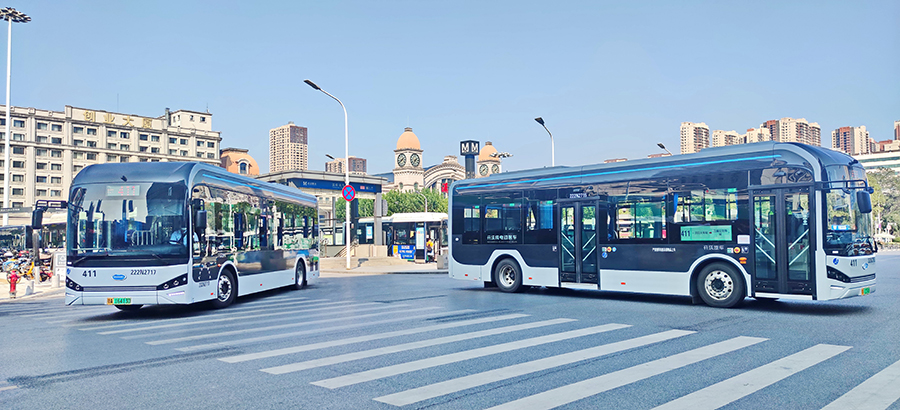EVs to increase in public transport
By CHENG YU | China Daily Global | Updated: 2023-02-08 06:58

China aims to increase the share of electric vehicles in the public transport system to 80 percent in key areas, including bus and taxi services, by 2025, as the country accelerates its steps to promote green transformation amid booming new energy vehicle development.
According to a pilot plan of the Ministry of Industry and Information Technology and seven other ministries, China will speed up the full electrification of vehicles used in public transportation between 2023 and 2025, and the building of a charging and swapping infrastructure system that is "moderately advanced, well-balanced, intelligent and efficient".
The country also set the target of adding the same number of public charging piles as the number of EVs newly added to the public transport sector. The number of charging stalls for public transport vehicles is also expected to be no less than 10 percent of that for passenger cars on expressways, the plan said.
"The pilot work will not only effectively drive energy conservation and emission reduction, but also promote the construction of (green) infrastructure, so as to support the country's NEV development," said an MIIT official in a note.
According to the development plan for the NEV industry from 2021 to 2035 approved by the State Council, the country's Cabinet, vehicles used in public transport will be completely electrified by 2035.
The MIIT official, who asked for anonymity, also said that based on research, the ministry predicted that both production and sales of NEVs will maintain rapid growth this year.
Last year, China sold about 6.89 million NEVs, up more than 93 percent year-on-year. NEV production also soared nearly 97 percent to about 7.06 million units, data from the China Association of Automobile Manufacturers showed.
Thanks to the NEV boom, the market share of NEVs in the nation's auto market reached nearly 26 percent in 2022, up 12 percentage points.
Chen Shihua, deputy secretary-general of the China Association of Automobile Manufacturers, said January-February NEV sales might fall a bit compared with the same period of last year because of the withdrawal of subsidies that were first introduced in 2009.
But for the entire year, sales will maintain rapid growth, said Chen, as both the macroeconomy and consumer confidence continue to recover.
























